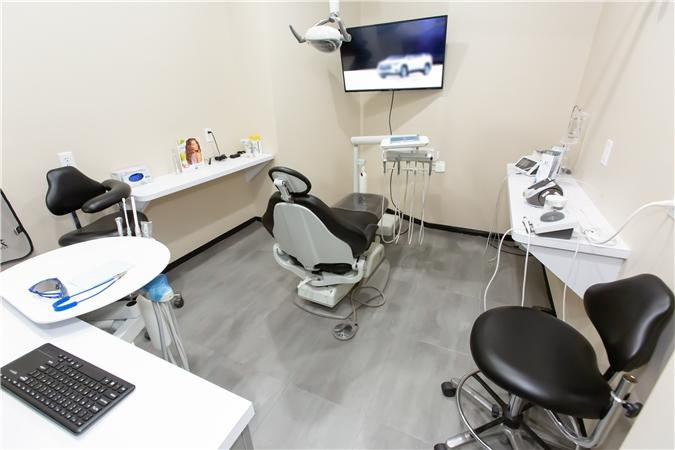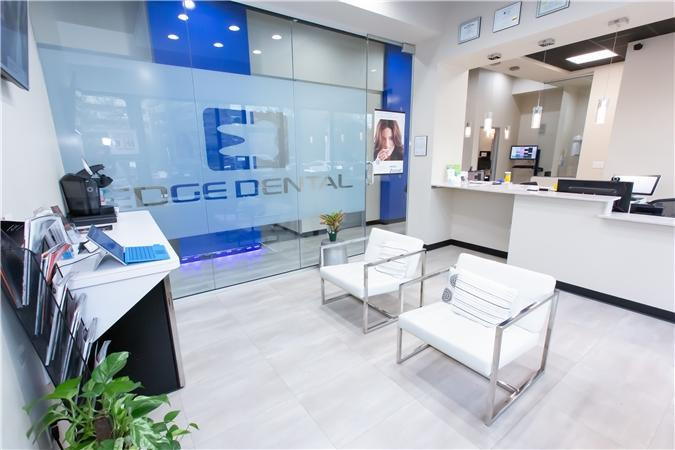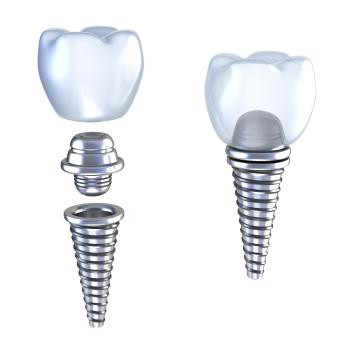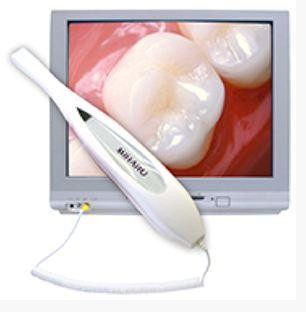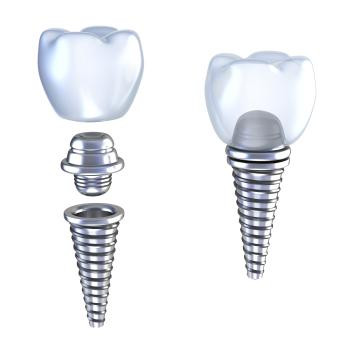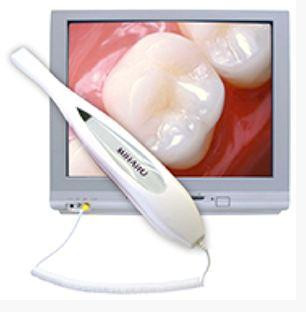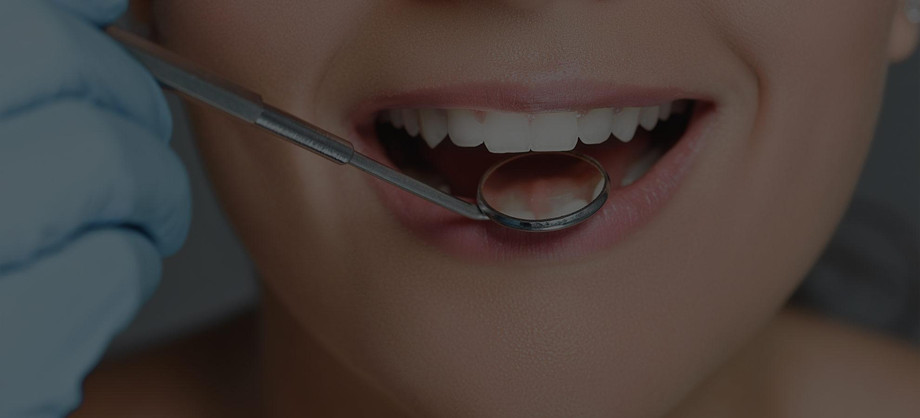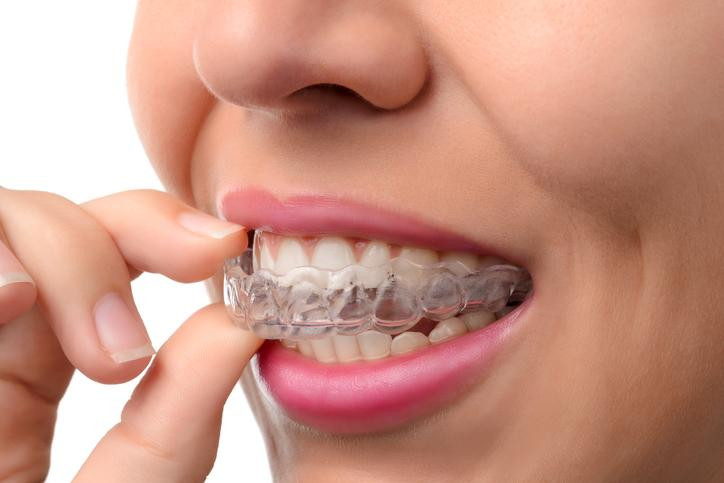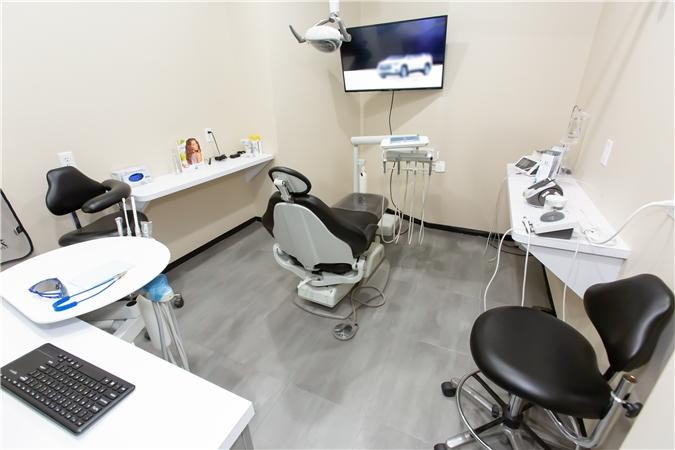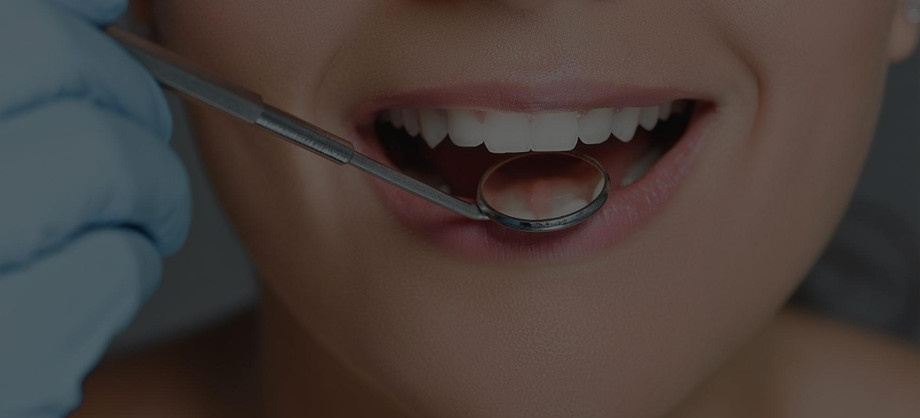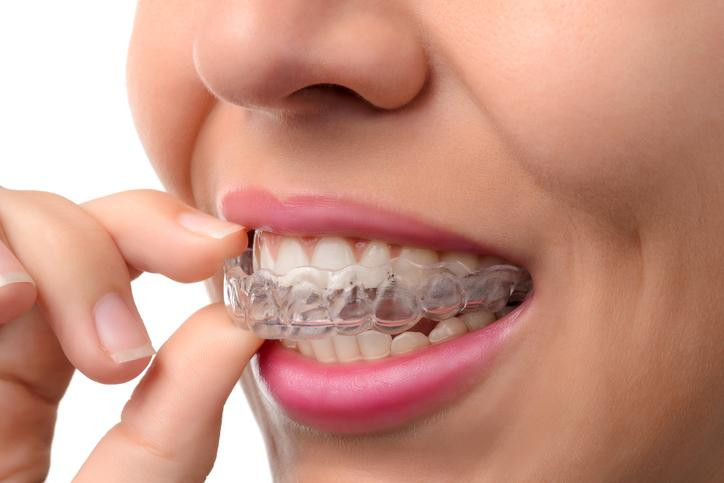flackflores's blog
Dental Implants are a widespread treatment option if you need to replace missing or damaged teeth. They can help you to achieve a natural-looking smile, improve your comfort and give you a new sense of confidence. Dental implants can be an ideal solution if you have missing or damaged teeth that you would like to correct. You might be wondering, are they permanent? How long do dental implants last?
Dental implants are designed to permanently solve tooth loss that lasts up to 20 to 30 years and is an affordable dental treatment. However, it also depends entirely on how well you take care of your teeth and oral hygiene.
Dental implants consist of a titanium ‘root’ embedded in your jawbone to replicate the root section of a natural tooth. A ceramic dental crown is set on the implant to replace the tooth. To secure their functionality and longevity, they need to be looked after just as a natural tooth would, which means daily cleaning, flossing, and regular visits to a dentist and hygienist.
Features of Implants:
The three primary factors that make up dental implants are the implant itself, the abutment, and the Crown.
- Implant
The dental implant functions like the root of a tooth. The titanium is surgically implanted into the jaw.
- Abutment
The abutment keeps the prosthetic tooth in position. This part stays above the jawbone, and your dentist will screw it onto the implant.
- Crown
A crown looks similar to a natural tooth and is usually ceramic. The Crown is attached to the abutment.
Which is best, root canal or dental implant?
If you are suffering from tooth pain or decay, go to an emergency dentist near me, your dentist might suggest you get a root canal or a dental implant to rectify your teeth issue.
When your dentist suggests a root canal, your dentist can save your teeth by removing the infected pulp and sealing it with a replacement material. You can use a crown if it is necessary.
Therefore, if your doctor suggests a dental implant, your natural teeth will be removed, and a metal post will be set in your jawbone. After, your dentist will screw a dental crown so that you chew quickly.
Always choose a root canal over a dental implant because nothing looks good than natural teeth.
Here are some benefits of root canal:
- No need of getting remove your original natural teeth,
- You will always have your genuine smile with a root canal.
- You may not need to pay too much for the treatment.
- The root canal treatment takes less time than the dental implant.
- Root canal cost is less compared to dental implant cost.
Ask the best dentist near me and discuss your teeth problems. Your dentist will suggest a solution after examining your teeth condition. Both the procedure are beneficial; it all depends on your tooth condition and whether a root canal or a dental implant will be good for your teeth.
Article Source : https://www.transitsblog.com/how-long-does-a-dental-implant-last/
The four permanent adult molars, known as wisdom teeth, are present at your mouth's top and bottom back corners. A wisdom tooth extraction is a dental surgical procedure to remove one or more wisdom teeth. You'll probably need a Wisdom Tooth Extraction Near Meif it is impacted or causing you pain, an infection, or other dental issues.
Even if impacted teeth aren't currently causing issues, some dentists and oral surgeons advisewisdom teeth removal near meto avoid future potential problems. The final permanent teeth to erupt in the mouth are the wisdom teeth, sometimes known as third molars. Between the age groups of 17 to 25, these teeth typically erupt, and some individuals never get wisdom teeth.
Others do not experience issues when their wisdom teeth erupt naturally, just like their other molars did. Wisdom teeth that don't have enough room to erupt into the mouth or develop normally are impacted wisdom teeth, which may partially or entirely fail to emerge.
Why is wisdom teeth removal needed?
Wisdom teeth need removal when they cause issues or when X-rays indicate they could in the future. Other justifications for removing them include:
- Damage to other teeth: Having an extra set of molars can force your other teeth into an uncomfortable position and affect your bite.
- Jaw damage: Cysts may develop around newly erupted teeth. They can empty or hollow out your jaw and harm nerves if you do not treat them timely.
- Problems with the wisdom teeth can cause pain, pressure, and congestion in the sinuses.
- Alignment: Impacted wisdom teeth might crowd other teeth, which may also require orthodontic treatment for other teeth.
- Gums inflamed: The surrounding tissue may expand and be challenging to clean.
- Cavities: Swollen gums can form spaces between teeth, which also encourage bacterial growth and the development of cavities.
What typically happens during the wisdom teeth removal procedure?
A local anesthetic is similar to the one they use to numb a tooth before filling a cavity, and dentists will use it to numb the teeth and the surrounding tissue before removing the wisdom teeth. You and your dental specialist or oral surgeon may decide that a sedative they must add to the local anesthetic drug. It is to numb the pain and reduce anxiety. Nitrous oxide, also referred to as "laughing gas," oral sedatives like Valium and intravenous sedatives are examples of sedatives that you may choose.
What is the cost of wisdom teeth removal?
The type and extent of your tooth impaction, the need for anesthesia, and your location might all impact how much your surgery will cost. According to cosmetic dentists near me, thetooth extraction cost might vary depending on the city or area, the clinic's or hospital's kind and amenities, the provider's experience, the number and type of teeth that needs extraction, and the medications utilized, etc.
Conclusion
We hope the above-given information will help you learn some valuable facts regarding wisdom tooth extraction. The above article highlights the critical aspects of wisdom teeth removal. For further information regarding wisdom teeth extraction, please visit edgedentalhouston.com.
Article Source : https://www.transitsblog.com/why-do-dentists-perform-wisdom-tooth-removal/
Root canal treatment is the most common procedure to relieve dental pain and help in the restoration of your infectious and diseased teeth. The dentist office near merecommends this treatment when there is inflammation and severe infections in the roots of your tooth. During this procedure, your endodontist, who specializes in such treatment, carefully removes the pulp or nerve tissues from the core of the teeth, cleans the teeth, and places a filling to seal the tooth to protect it from surrounding bacteria.
How painful is a root canal treatment?
Root canal procedureor RCT is absolutely painless; Your dentist will numb your teeth with local anesthesia; therefore, this procedure is entirely painless. If your tooth is suffering from infectious diseases and has immeasurable pain before the procedure itself, then pain may be expected.
How is a root canal performed, and what are the steps involved in an RCT?
Root canal treatment needs at least two visits to perform. Also, sometimes your dentist will recommend a ceramic cap on your healed teeth to increase the durability of your teeth.This procedure involves:
The dentist will take a digital scan and X-rays of the tooth, then use local anesthesia to numb your treatment site. After that, he will place a protective tooth or dental dam to isolate the diseased tooth from your mouth.
The dentist will make an opening in your tooth; using small instruments will clean the pulp and nerve tissue of your tooth. After this, your dentist will clean and shape your teeth for filling with a biocompatible material such as gutta-percha with an adhesive cement to completely close the bacterially infected site. Usually, during the first visit, your dentist places a temporary filling to seal the tooth.
During the final sitting, your dentist will place a ceramic crownon your tooth to provide strength and restore it to a fully functional tooth. If your tooth doesn't have a proper surface to hold the restoration, then your dentist may place a post inside the tooth.
What are the benefits of having a root canal rather than a simple extraction?
A Root Canal Recoverytreatment aims to save the damaged and infectious tooth. At the same time, an extraction procedure will altogether remove it. Yes, tooth extraction is a more straightforward procedure, but it can lead to many complications in the long run. Teeth, jaw alignment, and adjacent teeth may fill the gap and causes bad bite or crooked teeth. Teeth that have shifted from their original position may become loose and more susceptible to dental issues.
Are root canals linked to cancer?
The myth that root canal treatment causes cancer is scientifically wrong. People who undergo this process are more likely to become less diseased than others. Yet no scientific proof exists that root canal leads to cancer or other diseases.
Why are root canals performed?
Root Canal Treatment or RCT is necessary for those with a cavity and suffering from pain; to restore your tooth, you need RCT. When a tooth's pulp or the soft tissue inside the root canal gets inflamed or infected. So to save your tooth from this inflammation, dentists do root canal treatment for natural teeth.
Article Source : https://www.bloggingpalace.com/what-are-essential-faqs-about-root-canal-treatment/
You visit our clinic to verify the fit of your first set of aligners and make any required corrections. Except for when you eat, floss, and brush your teeth, you'll wear your aligners every day. You can momentarily take off your Invisalign braces whenever you need to throughout the day because they are detachable. Invisalign Treatmentis simple to use and seamlessly integrates into your daily routine.
You will cover your teeth with transparent braces after you receive your aligners. You will wear each pair of aligners for two weeks before you move on to the next set. Your aligners will first fit tightly since they make them shift your teeth slowly and precisely. After a few days, your teeth gradually move to a new position. You will notice that your aligners will feel a little loose after some days or weeks.
Don't switch them too soon, even if they start to feel loose. For the entire two weeks, wear them. Your teeth and gums have time to adapt to the new position, which will hamper your treatment strategy if you switch aligners too soon. You will visit our office for an appointment every six weeks to check your aligners and see how your treatment is going.
Who can wear Invisalign clear braces?Adults and teenagers can both wear Invisalign. In addition to correcting overbites, underbites, open bites, crossbites, and overcrowded teeth, Invisalign Dentist Near Meuse these clear braces to close spaces between teeth. We can decide if Invisalign is the best orthodontic treatment for you after examining your teeth and taking x-rays.
How do they make Invisalign clear aligners?They make this Invisalign clear from BPA-free plastic material, and they are more comfortable and far better than traditional metal braces. You can straighten your teeth with the help of these personalized clear aligners and achieve the stunning smile you've always desired. We'll have a consultation with you before we provide you with Invisalign clear aligners so we can go through your smile goals and what to anticipate from your treatment.
What are the advantageous factors of Invisalign over traditional metal braces?Understanding the benefits of Invisalign over conventional braces is critical while weighing your options for orthodontic treatment.
- These braces are visible, so people won't notice you wearing them.
- With Invisalign, your teeth will move more precisely than conventional braces.
- With Invisalign, maintaining good oral health is simpler. While eating, brushing your teeth, and flossing, you will take the aligners out.
- Compared to metal braces, these aligners are far more comfortable. Your teeth or gums are not irritated by them.
.
Which is better, six-month smiles or Invisalign?Each smile is unique. The ideal choice between Six Month Smilesand Invisalign will rely on your needs and objectives. Naturally, Invisalign will be your best alternative if you have a more complicated situation or don't like wearing fixed braces. Perhaps Six Month Smiles has the ideal answer.
Booking a free consultation is ultimately the finest way to comprehend your possibilities and select the best one. We'll question you about your objectives and way of life, go over your alternatives in simple terms, and help you choose a course of therapy that meets your requirements.
ConclusionWe hope the above-given information will help you understand more about the Invisalign treatment. The above article tells you some beneficial and valuable factors regarding Invisalign. For more helpful information regarding Invisalign, please visit edgedentalhouston.com.
Article Source : https://www.healthandhealthytips.com/how-exactly-does-wearing-invisalign-braces-work/
If you keep grinding your teeth a lot, you may suffer from Bruxism. This may lead to jaw pain and alignment problems. Sometimes you may not even notice you're teeth grinding. You can visit a dentist open near mefor effective treatment of Bruxism.
The symptoms of Bruxism are:
- Loose teeth.
- Fractured and chipped teeth.
- Some teeth have worn out the layers of your teeth enamel.
Probably you may grind your teeth once in a while. Most of the time, they won't cause any harm. If you regularly grind your teeth, that may have a situation called Bruxism, and it can hurt the other parts of your mouth:
- Teeth.
- Jaw muscles.
- Temporomandibular joints (TMJs) connect your jawbone to your skull and allow you to rotate your mouth up and down.
Even Bruxism may happen when you're awake. This course of action is the same but considered two separate conditions:
Awake Bruxism:
In this case, you grind your teeth and jaws during the daytime. It is commonly associated with emotional issues such as anxiety and stress, which can lead to chipped teeth or wear and tear. Awake Bruxism often doesn't need any treatment; if you're likely to control and stop. Stress management can help you to learn more ways to cease this type of issue.
Sleep bruxism:
This is the second case in which you grind your teeth while sleeping; this may cause you more harm without knowing, and you can't get any help. In addition, while sleeping, people don't know how much pressure they exert on their teeth and jaws. This may include 250 pounds of force and can cause severe misalignment, TMJ's, and many teeth problems.
Why are teeth grinding harmful?- New Changes in your looks (aesthetic problems)
- Chipped,broken tooth, or loosened teeth.
- Harms TMJs and other facial joints
- Loss of teeth enamel.
- Wearing down of teeth and surface.
Like adults, children may suffer Bruxism if you may hear your children's teeth grinding in their sleep. It would help if you visited your Bruxism Treatmentdentist. However, Bruxism in children may not lead to long-term damage because children's teeth and jaws change quickly, and they may outcome Bruxism by the time they lose their first set of teeth. Still, some children may continue to grind their teeth until their teenage years. And regardless of age, teeth grinding in children may lead to many teeth issues.
Stress is one of the main reasons for Bruxism in adulthood, but this is different in children. Teeth grinding in children may cause
- Allergies.
- Misaligned teeth.
- Mouth irritation.
- Obstructive sleep apnea.
- Heredity.
Consultation with your dentist or provider will help you correct teeth grinding issues. Also, if you have jaw or tooth pain problems, your dentist recommends night teeth grinding guard. This affordable dentaltreatment will help you until Bruxism turns out to be a stress issue.
Article Source : https://www.hugotips.com/what-are-the-symptoms-and-causes-of-bruxism/
A dental implant is an artificial structure that acts as a tooth replacement. A dental implant can provide support for one or more teeth. When a tooth's root fails, you can replace it with a titanium screw. It is inserted into the jawbone similarly to a tooth root. The surgeon at Dental Implants Houston places a dental implant into the jawbone using devices and tools that resemble screws. The dental implant is the anchor for a crown, a type of artificial tooth.
The dental implant and the prosthetic tooth are joined by a component known as an abutment. Dentists design the crown for the individual to fit perfectly in their mouth and complement their natural tooth color. Crowns have a natural feel, appearance, and performance.
Is the dental implant procedure safe, and how long will it last?According to a dentist implant near me, Implants are a tried-and-true, safe procedure. Like natural teeth, implants will likely endure as long as you take care of them, which is probably accurate. A dental implant procedure is safe if a trained and experienced surgeon or dentist completes the process. Additionally, it is the only effective dental restoration method that allows or promotes the growth and preservation of the jawbone.
According to a dentist who does Dental Implant Dentures, The critical determinant of how long your implants will survive is how well you take care of them and if you attend your scheduled maintenance appointments. Your implants will acquire a coating if you don't care for them, just like you would with neglected natural teeth. Left untreated, gum infection, bleeding, inflammation, and general discomfort can result in gum infection. All of these dental issues are possible with natural teeth.
Do dental Implants causes pain?A Dental Implant Dentist typically uses a simple local anesthetic while placing an implant, which is frequently more direct than extracting a whole tooth. While there won't be any discomfort or pain at the time of the procedure, you might experience some discomfort a week afterward, much like after an extraction.
If you are highly anxious or the case is complicated, your dentist may occasionally give you a sedative. They rarely use general anesthesia for dental implants, typically reserved for complex situations.
How long does the dental implant procedure usually take?Your dental team will provide a strict timetable before the treatment begins. You can put some fake teeth can even now alongside implants. Ask your dental staff if you're unsure whether these are right for you. They fix the artificial teeth three to four months after the placement of implants. Your dental professional team will be able to tell you how long your treatment will take if it takes longer than expected.
What happens after the procedure?After they place your dental implants, the bone in your jaw needs to grow onto them and close to them. It typically requires several months. They can sometimes fit the false teeth earlier because the implants may be stable enough when implanted. You might use a temporary denture while having one, two, or three teeth replaced. While your implants are healing, you can continue to wear your complete dentures if you currently have them.
ConclusionFrom the above-provided details, we can say that the above article gives us valuable insight into the dental implant procedure. It shows the various informative aspects of dental implants. For further information regarding dental implants, please visit edgedentalhouston.com.
Article Source : https://www.worldofarticles.com/what-can-we-expect-from-the-dental-implant-procedure/
Sleep apnea is a severe disorder when breathing stops and starts during sleep. Left untreated, it could cause loud snoring, full-day tiredness, or severe problems like higher blood pressure and heart trouble. If you find any such condition, you can visita dentist near me.
The Link Between Sleep Apnea and Your Dentist
Are you struggling with snoring and sleeplessness? An urgent visit to your nearby Emergency Dental can help you. These are the common signs of obstructive sleep apnea, which may happen due to poor oral health.
This condition is different from regular snoring. Your dentist consultation will help you to differentiate between primary and sleep apnea problems. Your primary snoring is because of your nose and throat or sleeping style. You should visit a dds near meif you find any common symptoms.
Sleep apnea symptoms:
- Snoring louder than those regular ones
- Stop or Pause while breathing
- Take shallow breaths, gasp, or choke and be restless all the day
Types of Sleep Apnea
Obstructive sleep apneais one of the most common types of sleep apnea. It happens when your airways, after a time, become wholly or partially blocked during sleep, generally because your soft tissue collapses. In this process, your chest muscles work harder than usual to open your airways, And you may find louder gasps while breathing. This results in lower oxygen flow to your body parts and leads to abnormal blood pressure.
Usually, you won’t notice any signs of obstructive sleep apnea. But, your bed partner may be aware of of you. Here are the most common signs and symptoms of Obstructive sleep apnea:
- Snoring and fatigue or sleepiness the whole day
- Restlessness while sleeping, or continuous awakenings
- Dry and sore throat when you wake up
- Sudden Waking up after choking or gasping
- Low concentration or forgetfulness
- Depression or anxiety
- A constant peeing during sleeping
- Night sweating
- Sexual dysfunction or Headaches
Central sleep apnea is a type in which your airway doesn’t become blocked. Instead, your brain stops sending signals to your muscles, which becomes an issue in your respiratory control center. It’s related to the functioning of your nervous system. Central sleep apnea happens most often in people with neuromuscular disease such as amyotrophic lateral sclerosis (ALS, or Lou Gehrig’s disease), those with a stroke, or those with heart failure or other forms of heart, kidney, or lung disease.
People with central sleep apnea commonly say they wake up frequently or have insomnia. But they also feel choking or gasping sensations when they awaken. These symptoms are not common in children.
- Sluggishness or sleepiness
- Poor performance during the school
- Daytime continuous mouth breathing
- Inside movement of the rib cage when inhaling
- Too much sweating at night
- Unusual sleeping positions
- Bedwetting
Complex sleep apnea syndromeis the type in which your doctor found both obstructive and central sleep apnea. Doctors also call this type of sleep apnea treatment-emergent central sleep apnea.
Article Source : https://www.articleentry.com/what-is-sleep-apnea/
